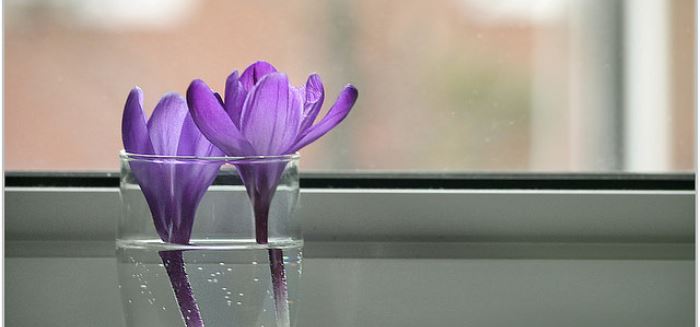Summer is often a time for moving. I remember my first moving truck — it was the smallest the company offered, and we didn’t get close to filling it. Now, after buying a home and filling it up, I’m not even sure we could fit all our things in a single U-Haul. In today’s post we begin a two-week series on minimalism and its relationship with stewardship. Pastor Becca Ehrlich will lead our journey, but don’t worry, I promise no purchase is required.
Yours truly,
Adam Copeland, Center for Stewardship Leaders
Simplifying Stewardship – Part One
Rev. Becca Ehrlich
There is a counter-cultural lifestyle that is gaining speed all over the world, and especially here in the U.S. It’s called minimalism, and those who live as minimalists aim to live a different lifestyle than what society tells us we should be living.
Minimalism is about focusing on what matters most in life and intentionally removing everything else. Let’s try something — take just a minute or two, right now, and think about what’s most important in your life. If you had to distill your life down to what matters most, what would remain?
What’s most important?
What did you come up with? No matter the socioeconomic level, ethnic background, gender identity, sexuality, or geography, humans tend to identify the same aspects of life that matter most. Relationships with loved ones. Personal health. Having something that gets you out of bed in the morning. Giving back to the community. And if that human is a person of the Christian faith, the Triune God typically makes the list.
The most important aspects of life are pretty universal. Yet, there are aspects of life we often put ahead of what’s most important. Accumulating material possessions. Keeping up with the Joneses. Climbing the corporate ladder. Chasing after accolades and fame. Squandering an inordinate amount of time binge-watching trashy reality TV.
As we already found in response to the question above, we innately know what matters most in life, and we know how our time and talents and resources should be used. But how we live our lives doesn’t always match up with what we know.
Much of the problem is a result of years, even decades, of societal brainwashing. Consider this. To continuously buy material goods, even when we don’t actually need them, is considered patriotic — we’re supporting the economy. To constantly strive for more and more money in our paycheck, regardless of the longer hours worked and time away from other vocations, is the fulfillment of the American dream. We are bombarded by hundreds of advertisements a day, constantly telling us that happiness and satisfaction is just a purchase away.
And yet, when we take just a minute to think about what truly matters in life, none of what consumer society tells us makes the cut.
What about Jesus?
None of this is new. Jesus was all over it, because even in his time people were having a hard time focusing on what really matters.
“Therefore I tell you, do not worry about your life, what you will eat or what you will drink, or about your body, what you will wear. Is not life more than food, and the body more than clothing?…Therefore do not worry, saying, ‘What will we eat?’ or ‘What will we drink?’ or ‘What will we wear?’ For it is the Gentiles who strive for all these things; and indeed your heavenly Father knows that you need all these things. But strive first for the kingdom of God and his righteousness, and all these things will be given to you as well.” (Matthew 6:25, 31-33)
At the core, Jesus is freeing us from having to strive for what society wants. Jesus is freeing us from working so hard to be what we are told we have to be — we can let go from society’s expectations of us, and trust that God will give us what we need. Jesus is reminding us: “I got this. Seek me first, and the rest will fall into place.” It’s so simple, yet much of the time we forget.
Kicking Expectations to the Curb
So what does this mean for our lives? What would it look like to be more intentional about how we spend our time, our money, our energy? What would life look like if we experienced the freedom Jesus offers us from societal expectations? How would we live differently if we trusted God’s promise to provide what we need for the type of life Jesus is calling us to live? What would a simpler life look like?
Congratulations. You are now thinking like a Christian minimalist! Stay tuned for Part Two — there’s so much more to simplify!
For More Information
Pastor Becca Ehrlich is an ELCA pastor serving as Associate Director of Admissions at United Lutheran Seminary in Gettysburg and Philadelphia, PA. She blogs about minimalism from a Christian perspective at www.christianminimalism.com.

